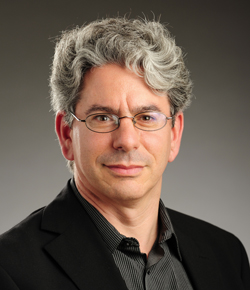
Politics faculty member David Peritz
The 2016 national elections form one of the strangest and saddest episodes in recent American history. In the primaries, Donald Trump and Bernie Sanders vied to channel popular discontent, anger, and disgust with politics as usual, demanding systemic change or a return to simpler, putatively better times. While Sanders fell short in his improbable challenge to Hillary Clinton, Trump staged a successful populist revolt within the Republican Party, a hostile take-over against the Party’s leadership and donor class that exposed deep fissures within Republican constituencies and a still deeper crisis of responsiveness in American democracy. The result is one of the most fractious campaigns in generations, a spectacle that has done little to frame the many urgent issues facing the country, and much to deepen polarization, mistrust, and dismay. What changes in American society and politics are driving this populist resurgence? Is the left or the right more likely to benefit? Are there opportunities for systemic reform contained in our unsettled politics? This lecture presents an opportunity to step back and reflect on our politics on the eve of the 2016 elections. We will trace the roots of the current waves of political populism, anger and anxiety to recent social and political changes in order to illuminate their sources and cross-cutting political potentials.
David Peritz—BA, Occidental College. DPhil, Oxford University. Special interests in democracy in conditions of cultural diversity, social complexity and political dispersal, critical social theory, social contract theory, radical democratic thought, and the idea of dispersed but integrated public spheres that create the social and institutional space for broad-based, direct participation in democratic deliberation and decision-making. Recipient of a Marshall scholarship. Taught at Harvard University, Deep Springs College, and Dartmouth College; visiting scholar at Erasmus University in Rotterdam and the London School of Economics. Sarah Lawrence, 2000–